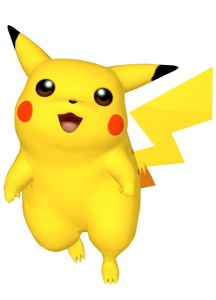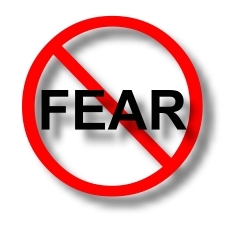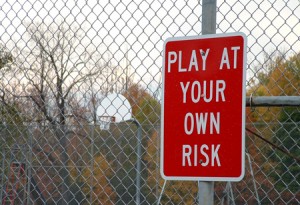In one way or another, all parents that have a child with Autism will become an advocate… whether they are just explaining to fellow family members why their child behaves how they do, or if it’s fighting for their rights in schools and other services or if it’s speaking out to the world on behalf of all people with Autism… we all come from the same place, we all do our best with the best of intentions.
In some ways, it sounds glamorous… putting up the good fight, speaking to the hearts of others… but at the same time, it sounds like quite the struggle. A constant, tireless battle requiring a love filled heart surrounded by a skin of steel.
I can’t speak for everyone, only myself, but one could imagine that the stories of most people aren’t far off from what I’m about to tell you.
What you already know
If you’re reading this, you’re likely a parent. Which means you already know all about the cost of parenthood, the constant running around, the constant illnesses, the constant battles at bed time and so on and so forth.
This includes the unexplained rashes, heart break over bullying and more.
What you might not know
With Autism comes a host of other issues, including no sleep, irregular diets, regular therapy appointments, battling the education system, having to fight with the government for coverage and assistance and a whole lot more.
Bullying is far more likely as well as far more frequent. Friendships are far less likely and less frequent.
Regular clothing can be painful, bike riding can take 2 to 3 times longer to learn, special equipment may be needed such as trampolines or Lycra(stretchable) bags or bedding. Some children even need weighted vests.
The diets aren’t just stressful to keep on top of, but in some cases can be quite costly. For example, I can buy a loaf of bread for $1.80 at the store…. or I can buy a loaf of gluten free bread for my son for around $8. A small bag of gluten free pretzels, containing about 12 pretzels, costs $5.
The cost of success
So it turns out that I’ve been doing rather well at being an Autism Advocate… but the question is, what does “doing rather well” mean?
Well, no parent becomes an advocate for the paycheck.
I have been asked by several blogs, even charities, to write for them. I’ve done several radio interviews, been in the paper a few times, even had CNN call me once. I have almost 10k followers/fans/circles across the various social networks and I get between 5 and 10 emails a day with questions or just to share their story.
All in all, I call that a success and am quite proud. However, there is an inherent problem with all of this.
As it adds up, I find myself spending 1-3 hours a day on Autism advocacy… that’s my own personal time.
When you consider that I have a 9-5 job just like everyone else, plus a family of 4 which I love to spend my time with and then various other responsibilities and commitments… let’s just say that the 24 hour day gets used up pretty quick.
On top of that, as I said earlier, therapy, diets, special supplies and more really begin to add up when being a parent tends to cost a small fortune as it is.
The cost of success being an Autism parent advocate is that you get less hours, more bills and even greater stress.
It’s not a thankless job
The one saving grace is that it’s not a thankless job. I often hear from others how grateful they are and for that, I myself, am grateful. If money wasn’t a problem, that’s all I’d ever need. A thank you means everything to me.
Welcome to the crossroads. That’s where I am now. I love being an Autism advocate. I love hearing from people… their good stories, bad stories… I love writing the articles, reading articles from others…
The problem is, I simply can’t keep devoting hours of each day while the bills pile up and begin to fall behind.
I come across twitter account after twitter account, facebook fan page after facebook fan page… inactive. And I can’t help but wonder if they ran into the same crossroads. Did they lose interest? Or did they find that they simply couldn’t commit to it any longer?
Autism advocacy: it is glamorous, it is a struggle… it is all those things to different people.
The good news is that the numbers keep growing. Awareness keeps increasing. With every person that has to hang up their hat to focus on their family, there’s another 2 people there to take their place.
No matter what. Stay strong. Stay positive. And remember, support is where you give it.
 As I see parents writing articles on what Autism is, or how to describe it, I wonder how many of those people ever asked themselves what it would be like if they had Autism themselves.
As I see parents writing articles on what Autism is, or how to describe it, I wonder how many of those people ever asked themselves what it would be like if they had Autism themselves.











